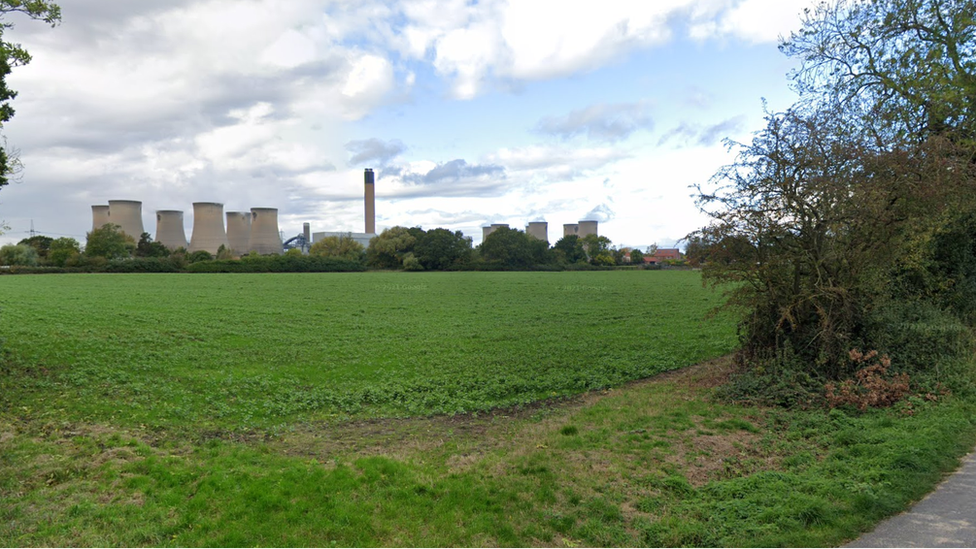Drax renewable energy storage scheme approved
- Published

The village lies in the shadow of one of Britain's largest power stations
Plans to create a battery storage facility for renewable energy in a North Yorkshire village have been approved, despite objections.
The site at Drax, near Selby, will hold energy produced at Drax Power Station when demand from the National Grid is low.
However, residents had concerns over the loss of agricultural land and the impact on the village.
Selby District Council gave permission for the 0.7 hectare (1.73 acre) site.
Applicant Aura Power said the site, 2,000ft (600m) from the power plant, would store enough energy to supply 26,000 homes.
George Wilyman, from the company, told councillors one of the drawbacks of renewable energy was that electricity generation cannot be controlled to match customer demand.
According to the Local Democracy Reporting Service, he said the batteries would store electricity at times of high generation, releasing it back to the grid as needed.
"It will also significantly assist the UK's ambition to achieve energy security," he added.
Rural village
Drax, originally a coal-fired power station, now burns wood pellets and is the UK's largest renewable power station.
One of the 20 people who objected to the proposal was parish councillor Diane Hall.
In a statement read to the committee, she wrote: "Drax is a rural village despite the size of the power station - the residents would like to keep it that way."
Conservative councillor Charles Richardson said he thought the proposal was "inconceivable" given its location.
The committee was told five other battery facilities had either been approved or had plans submitted for approval in Drax and the surrounding area.
Councillor John Mackman, also a Conservative, said at some point the cumulative impact of all these facilities would become an issue as the area does not want "to be swamped".
However, he said he would support the scheme.

Follow BBC Yorkshire on Facebook, external, Twitter, external and Instagram, external. Send your story ideas to yorkslincs.news@bbc.co.uk or send video here.